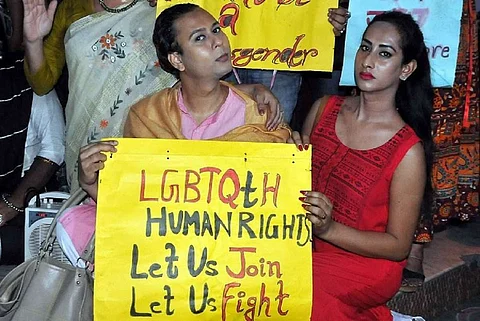

At a time when the transgender community in India is struggling to survive due to the lockdown, the Indian government has thrown them another insensitive challenge. While there has been no talk of comprehensive relief measures for the community save for what some state governments are doing, the Union government has now released the draft Transgender Persons (Protection of Rights) Rules, 2020 for comments and suggestions from the public.
The rules seem to have been released on April 17, 2020. And the government has given just 13 days for the community to respond – a move which has come under significant criticism from the transgender community.
An ill-timed move
The government passed the Transgender Persons (Protection of Rights) Act late last year, despite widespread, nationwide protests against its regressive and problematic nature. While that itself delivered a huge blow to trans persons in India, releasing the rules now, in the middle of a pandemic, bodes even worse for the community.
“The timing of it is really condemnable,” says Grace Banu, a Tamil Nadu based activist and founder of Trans Rights Now Collective.
Meera Sanghamitra of National Alliance of People’s Movements agrees, and calls the releasing the rules for comments in the middle of a pandemic extremely insensitive on the government’s part.
“There is no way that the transgender community can get together and meet right now to discuss the rules. And not everyone can have these discussions over WhatsApp and email. None of these issues have been factored in,” Meera points out.
Grace and Meera also point out that the rules have not been made accessible in terms of language either – the document available on the website is only in English. “Only people who have the privilege to access the internet and know English will be aware of them. And given the timeline and the lockdown, these won’t reach rural areas and grassroots where people are struggling. So how will they be able to give suggestions?” Grace questions.
“It appears that they don’t want our comments, which is why they have chosen this time,” Grace says.
“We can’t give a lot of feedback at this time, clearly,” says Karthik Bittu Kondaiah, member of Telangana Hijra Intersex Transgender Samiti. “And the government has made it clear that they don’t care about what the transgender community thinks, and they don’t want us to be involved in a democratic process in this legislation.”
“The Act was passed many months ago, what is the urgency now to pass the rules? It can wait. What we need right now is some financial support so that the community can live through this time. Then, once the lockdown and pandemic are over, we can take this issue up again,” Meera states.
So what should the govt do?
Trans activists say that the rules themselves are quite regressive, and are against ideals of self-identification in the Supreme Court judgment in 2014 in the National Legal Services Authority (NALSA) vs Union of India case, much like the Act itself.
Bittu says that they will be responding to the government in their capacity, with recommendations regarding the rules, and has prepared an extensive document that TNM has seen.
Activists also say that at this point of time, the government should instead be stepping up to help the transgender community during the COVID-19 pandemic. They have repeatedly pointed out that the Centre has not made any mention of the transgender community or the issues they are facing – with regard to daily sustenance, living conditions, HIV positive transgender persons needing anti-retroviral therapy on a regular basis, those on hormone therapies and other health related issues needing healthcare access and so on.
“We are entitled to rights as citizens. We have been demanding that a subsistence allowance of Rs 3,000 at least be given to transgender persons so that people can buy ration, pay rent and so on. People don’t have ration cards, no other source of income is there at this point. We have also been joining other groups over the demand of universalisation of the public distribution system and free ration or ration at bare minimum cost for everyone who needs it. We want an all India declaration that no transgender person will be evicted till the end of May – some states like Telangana have made this assurance, but we need this to be done at national level,” Meera says.